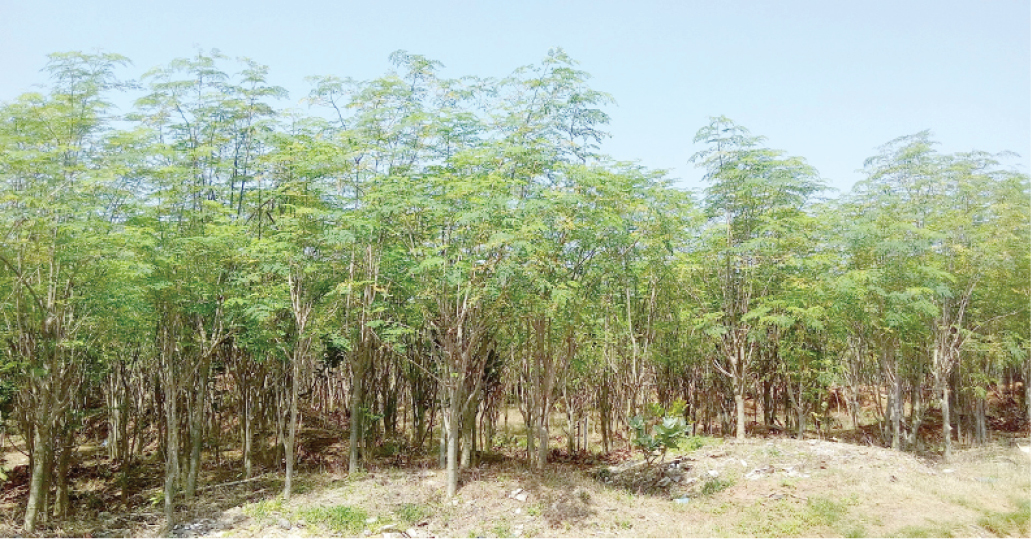Moringa is a plant with multifaceted potentials. The fast-growing, drought-resistant plant has socio-economic benefits that cut across food and nutrition, medicine, agriculture, ornamentals, environment, renewable energy, chemicals and pharmaceuticals among others.
Experts believe the numerous socio-economic potentials of moringa make it a versatile plant that can easily address part of the diversification agenda of the government and many aspects of the Millennium Development Goals (MDGs).
Research has shown that the different parts of the moringa tree contain at least a beneficial nutrient or anti-nutrient useful to mankind.
In the health sector, the fresh leaves from moringa are good sources of vitamins A, C and E. Vitamin A has important functions in vision, reproduction, embryonic growth, immune development and cell differentiation. The root bark has medicinal values and it is used for dyspepsia, eye diseases and to treat heart problems. The tap root of Moringa is used as a spice.
Moringa seeds are also used in the cosmetic industry and for production of biodiesel while the seedcakes, can be used as green manure or as fertilizer. The flowers are used to make tea with hypocholesterolemic properties.
In view of the above benefits, the federal government through the Raw Material Research Development Council (RMRDC) is working to develop the plant and ensure the proliferation of its products not only for food security, enhancement of nutritional wellbeing of the citizenry but also for economic growth and promotion of economic activities in both the rural and urban centres in Nigeria.
The council said it has played a leading role on the symmetric development of the moringa plant, ranging from awareness creation on its socio-economic benefits, domestication, boosting the cultivation of the plant, and development of SMEs for moringa processing and value-addition.
“Among the Council’s activities on the development of moringa locally is its collaboration with Ahmadu Bello University, Zaria, where R&D project is being conducted on the utilization of Moringa oleifera seed extract as phyto-chemical for the replacement of imported chemical (Alum), in water treatment for rural communities in Nigeria,’’ Professor Ibrahim D. Hussaini, the DG of the Council said.
According to him, the Council in addition, hosted a number of sensitization and exhibition workshops at different locations in the country.
He said research is ongoing to firmly establish the effect of moringa seed and its toxicity (if any) on the development of rat fetuses in utero in order to cautiously extend the result to human beings.
Likewise the Council, he said is collaborating with the University of Ilorin to establish the impact of moringa seeds consumption and wellbeing on the teeming population of Nigerians, who consume the seed as their major source of protein and the purported therapeutic benefits therein, especially the COVID-19 pandemic.

 Join Daily Trust WhatsApp Community For Quick Access To News and Happenings Around You.
Join Daily Trust WhatsApp Community For Quick Access To News and Happenings Around You.


